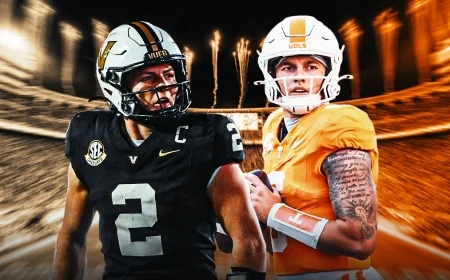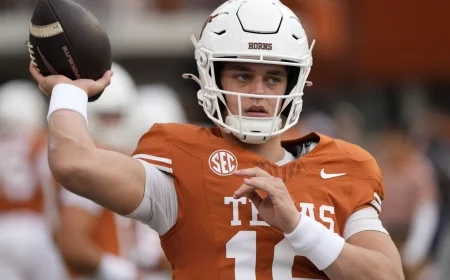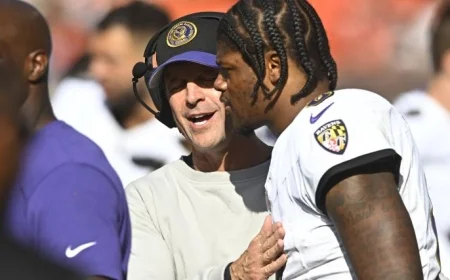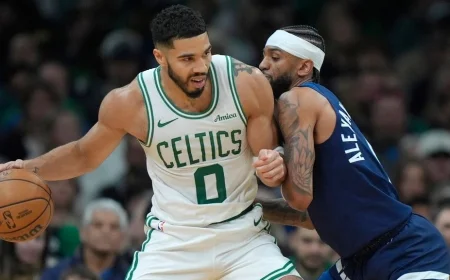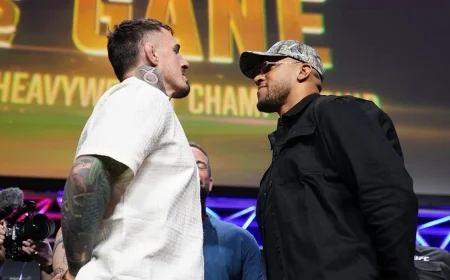DI Administrative Committee Approves Proposal Allowing Student-Athletes and Staff to Bet on Professional Sports

NCAA Considers Major Shift: New Rules Allow Student-Athletes to Bet on Professional Sports
The NCAA Division I Administrative Committee has proposed a significant rule change that would permit student-athletes and athletics department personnel to place bets on professional sports. This change, which is pending approval from all three NCAA divisions, could be implemented as early as November 1, pending discussions in Divisions II and III later this month.
Understanding the Proposed Changes to NCAA Betting Policies
While the NCAA’s longstanding prohibition against wagering on college sports remains intact, the new regulations aim to align college athletes with their peers in other arenas. This decision underscores a commitment to refine policies surrounding sports betting without explicitly endorsing it. According to Josh Whitman, athletics director at the University of Illinois and chair of the committee, the focus is on maintaining game integrity while allowing student-athletes to engage thoughtfully in betting activities on professional platforms.
Components of the proposal include:
- Permitting bets on professional sports by student-athletes and athletics staff.
- Retaining the prohibition on betting related to college sports.
- Continuing to restrict advertising and sponsorships tied to sports betting during NCAA Championships.
Support from Student-Athletes and Advisory Committees
The rule change has garnered support from the Division I Student-Athlete Advisory Committee (SAAC). They expressed hopes that easing restrictions will promote a culture centered on education and support rather than punishment. The SAAC emphasized the need for ongoing education and resources to help prevent gambling issues among student-athletes.
The SAAC’s statement highlighted several key points, including:
- Empowerment for student-athletes to seek help regarding gambling without fear of repercussions.
- Institutional rights to regulate sports wagering as deemed appropriate.
- Importance of education and support structures to prioritize student-athlete welfare.
NCAA’s Commitment to Responsible Gambling Education
The NCAA has already initiated various educational programs to help student-athletes understand the implications of sports betting. Dr. Deena Casiero, NCAA chief medical officer, advocates for a harm reduction approach to gambling, which encourages open dialogue and informed decision-making among college athletes.
Strategies include:
- Educational resources about the risks associated with gambling.
- Support mechanisms that allow student-athletes to voice concerns about their gambling behavior.
The Context of Increasing Violations and Enforcement Actions
The introduction of this proposed change comes at a time when NCAA enforcement has been scrutinizing an increasing number of violations related to sports betting. Notably, the NCAA Committee on Infractions has recently addressed cases involving student-athletes betting on their own games, which threatens the integrity of college athletics.
| Type of Violations | Number of Cases |
|---|---|
| Student-athletes betting on own games | Recent cases cited involve former men’s basketball players |
| Similar ongoing investigations | 13 student-athletes from six institutions |
Consensus and Future Directions
Organizations such as the National Council on Problem Gambling (NCPG) support the NCAA’s effort to modernize its policies related to sports betting. NCPG believes that the prior prohibitions created barriers for student-athletes seeking help for gambling-related issues. This revised approach encourages transparency and access to care, enabling student-athletes to manage their betting behaviors safely.
The Division I Board of Directors remains focused on sustaining rules that uphold the fairness of college sports while cautiously easing restrictions on professional sports betting. The overarching goal is to maintain academic integrity while adapting to the evolving landscape of sports wagering.




















